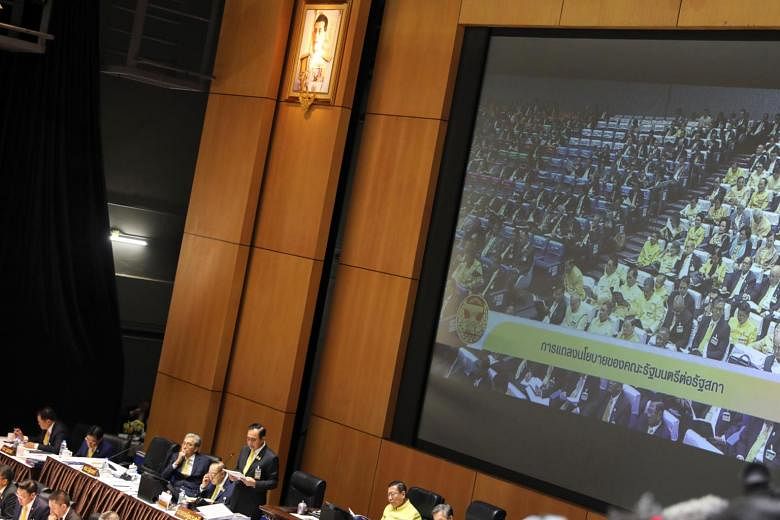BANGKOK - The Thai government has passed its first test since it took office in July as the House of Representatives voted to pass the first reading of the budget Bill for the 2020 financial year.
The Bill was approved by 251 votes for with none against as the 234 other MPs present abstained and one did not vote.
The vote came on Saturday (Oct 19) night at the end of an intense three-day debate on the Bill. The second and third readings are expected to be held in January.
The vote by and large reflected the composition of the House as the 16-party ruling coalition commands 250 seats, only seven more than the opposition.
"As the government has passed its first test, the chance it will stay longer in power becomes higher. I give them at least two years," said Dr Yuttaporn Issarachai, a political science professor at Sukhothai Thammathirat University located just outside Bangkok.
"There's even more likelihood for the Bill to pass in the final round as lawmakers will need the budget to be able to work in their constituencies," he added.
During the debate, the opposition had denounced the Bill, calling it "ineffective" in tackling the country's economic problems. Thailand has registered the lowest growth in five years at 2.3 per cent, due partly to the US-China trade war.
But the Prime Minister staunchly defended his administration's budget proposal and policies, saying the Cabinet had thoroughly considered each ministry's proposal.
"Please just help the country be happy. Bring smiles back to everyone. If we keep fighting like this who will visit our country?" Prime Minister Prayut Chan-o-cha pleaded with the lawmakers in Parliament.
The 3.2-trillion-baht (S$144 billion) budget Bill is the biggest in Thailand's history, 200 billion baht higher than last year.
A large chunk or 518 billion baht has been set aside for discretionary spending and the education ministry received the highest amount among all ministries, at 368 billion baht.
The 2.7 per cent increase in defence spending and a Thai army plan to acquire new weapons were criticised by the opposition during the debate in Parliament.


